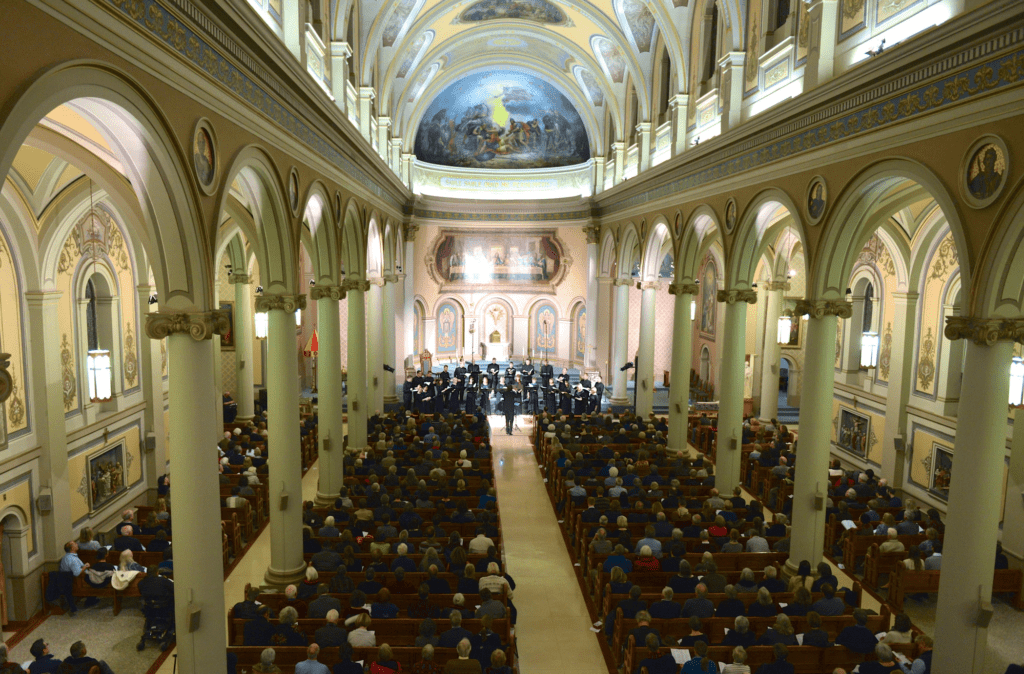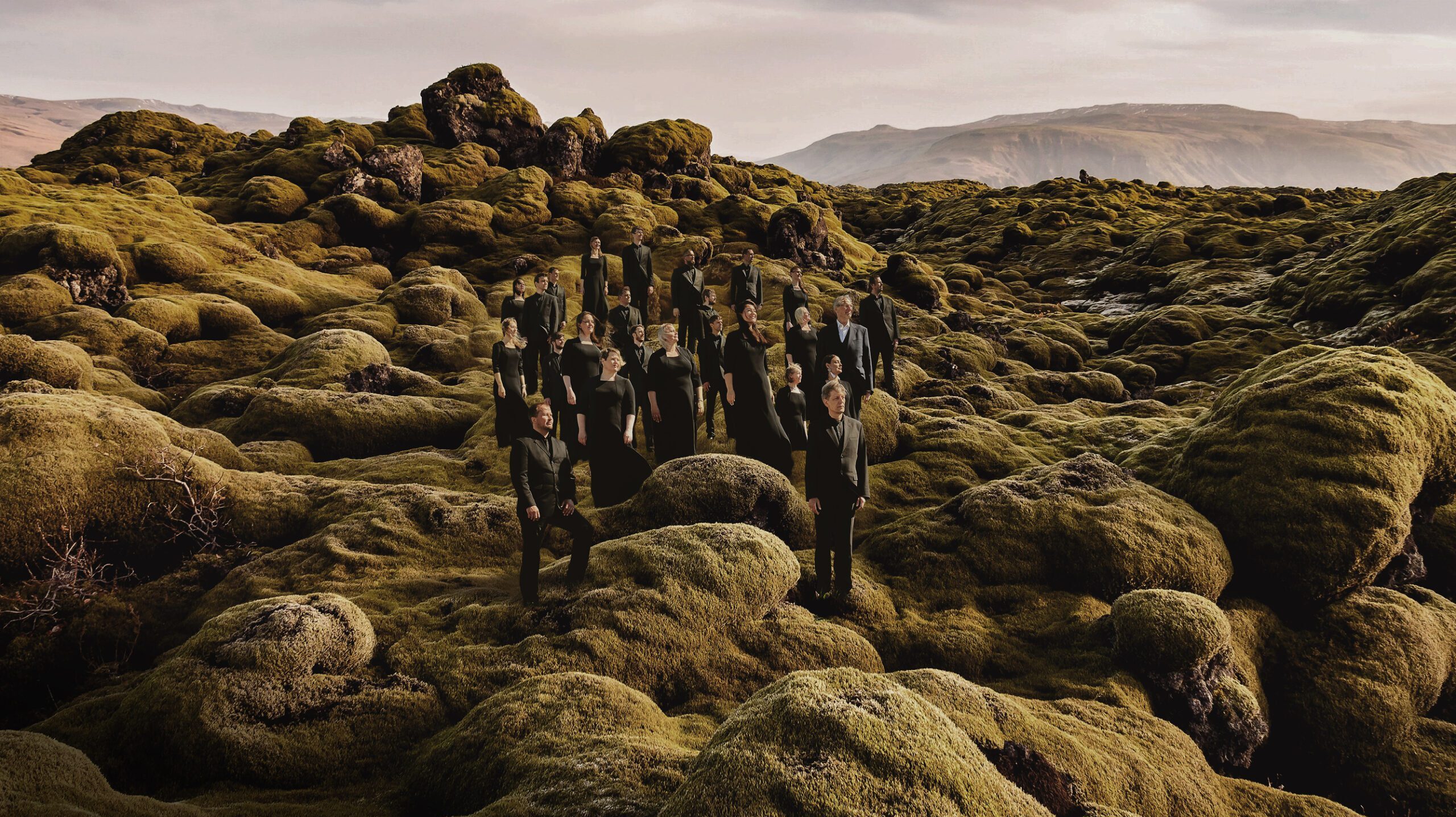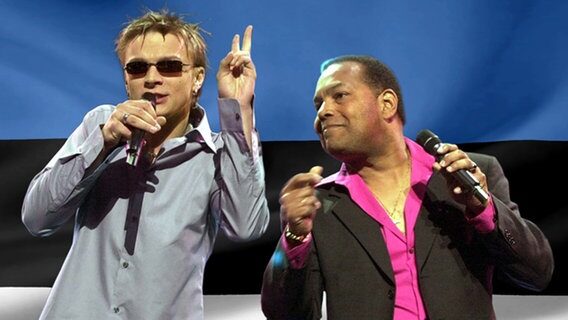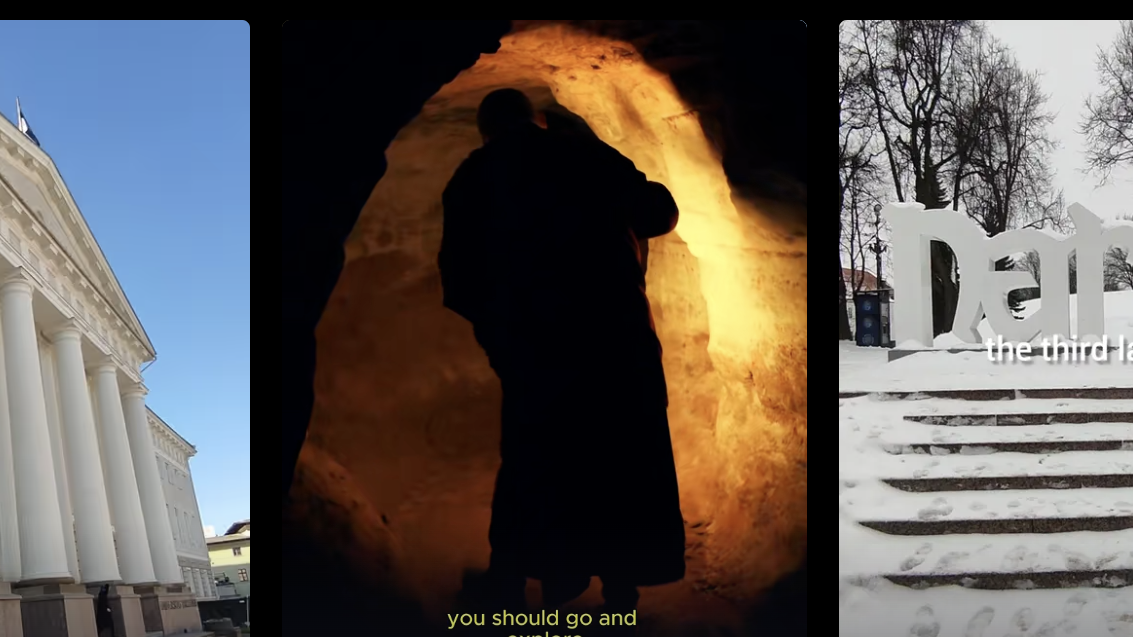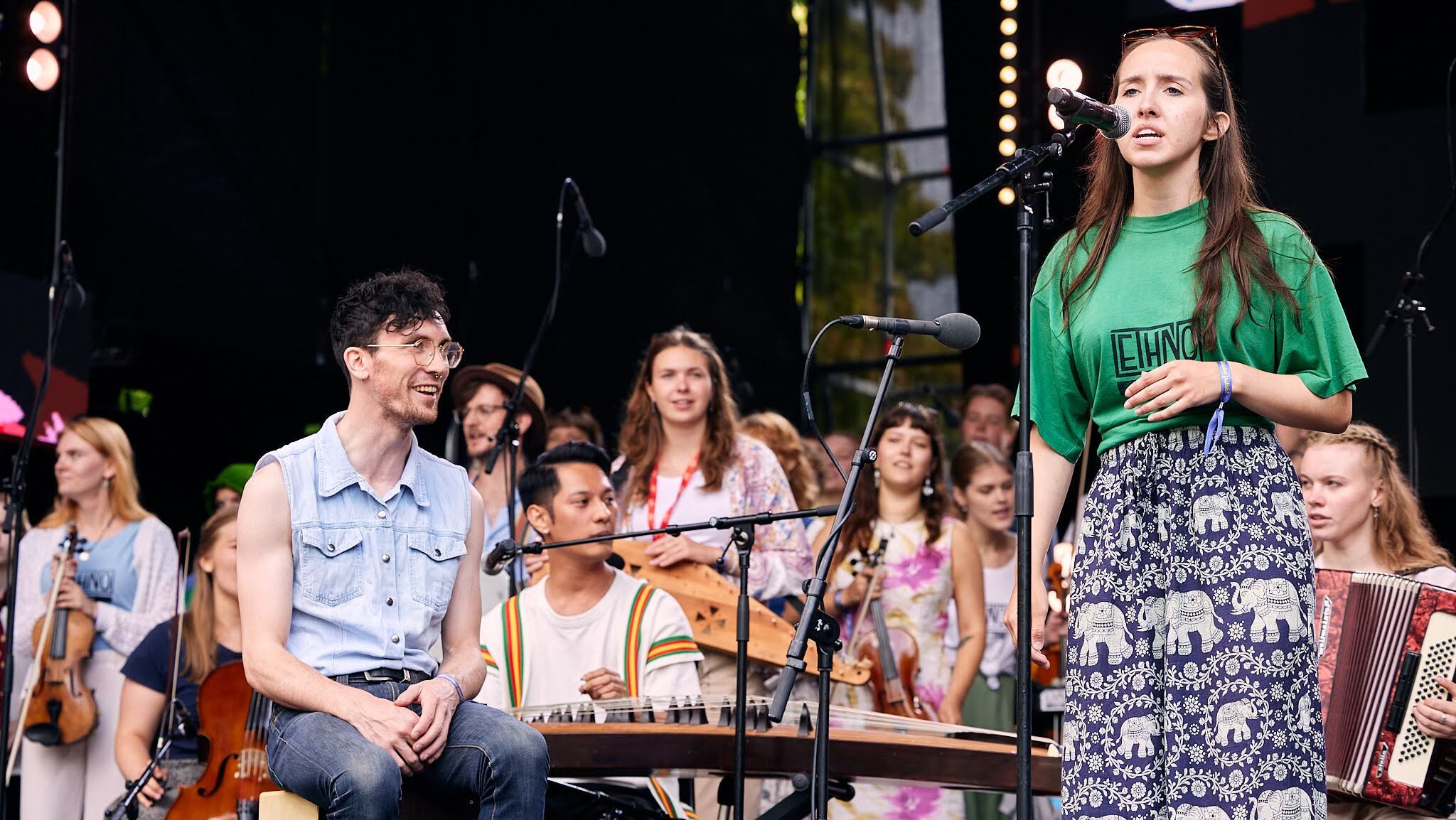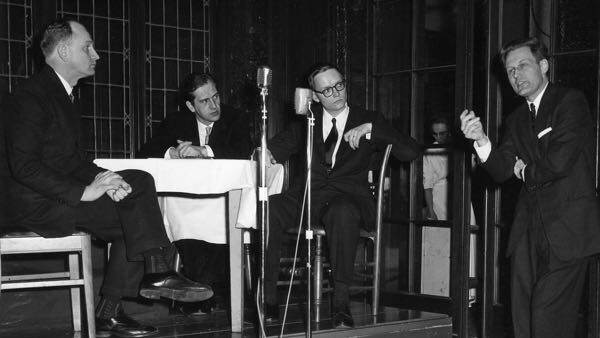This is in a contemporary classical context at least. And so Soundstreams’ presentation of a choral music concert on Saturday February 3rd, including the work of two Estonian composers, is fulfilling what Cherney deems an “enormous appetite for contemporary music sung by vocal ensembles.”
Featured in the February 3rd concert at St. Paul's Basilica in Toronto will be the Estonian Philharmonic Chamber Choir (EPCC). Led by chief conductor and founder Tõnu Kaljuste, the choir became internationally famous through several recordings they made of Arvo Pärt’s music, released by ECM Records. Yet, few people in North America had the chance to hear them live until Kaljuste and Cherney connected and brought the EPCC to Toronto in 2000. This was the first of what will soon be six visits, and these concerts have been consistently popular over the years.
Antarktos Monodies is a composition that reflects a mystery of the unknown and unknowable… the theme of my piece is not a comforting one; rather a dark and foreboding mystery that we do not have the power to comprehend, let alone name.
(Omar Daniel)
What can we expect from this latest visit? As outlined by Soundstreams, the concert will span a large historical and geographical range of sacred music, from the late Italian renaissance motets of Palestrina to four compositions of Arvo Pärt. Finally, there will be the world premiere of composer Omar Daniel’s Antarktos Monodies, based on H.P. Lovecraft’s surreal poem “Antarktos”. Cherney describes Palestrina and Pärt as musical “soulmates,” and it’s clear to see the spiritual parallels in their music. But this thread extends through Omar Daniel’s creation as well. Daniel says, “Antarktos Monodies is a composition that reflects a mystery of the unknown and unknowable, and so in that sense it is similar to sacred music. But, the theme of my piece is not a comforting one; rather a dark and foreboding mystery that we do not have the power to comprehend, let alone name.”
We mustn’t ignore Estonia, its legends, and its land as a well of spiritual possibilities, either. Daniel, who is Estonian-Canadian, recounted how, “As with many first-generation immigrant kids, I didn’t think one way or another about my Estonian heritage when I was growing up. But, about 20 years ago I became enamoured by Estonian Runo songs. And, along with that, I became more engaged with the Estonian language and culture.” Moreover, the deepening connection to his Estonian roots unveiled the origin of his belief system, which he describes as “a type of loose paganism.” There is certainly an inclusion of this spirituality in the programming of the February 3rd concert.
Among what has resonated with audiences about the EPCC’s performances is the depth of their bass voices. Another distinguishing feature that Lawrence Cherney mentions is “the quality of silence.” He states that the music performed is as much about silence as it is about the notes sung. He says, “When they're not singing, there’s an ethereal, spiritual state that they are able to achieve… It’s not about formal religion, but there is a kind of devotional state that they inspire both live and in recording.”
… just as a church, mosque, synagogue, or other spiritual place can help people reflect on their place in this world, [Cherney] believes that the performance of these works of art in the basilica will “open up a door to another aspect of our lives.”
Listening to this music at St. Paul's Basilica, Cherney thinks audiences will be entertained by the wonderful acoustics, which achieve a “bloom” in the sound. But just as a church, mosque, synagogue, or other spiritual place can help people reflect on their place in this world, he believes that the performance of these works of art in the basilica will “open up a door to another aspect of our lives.”
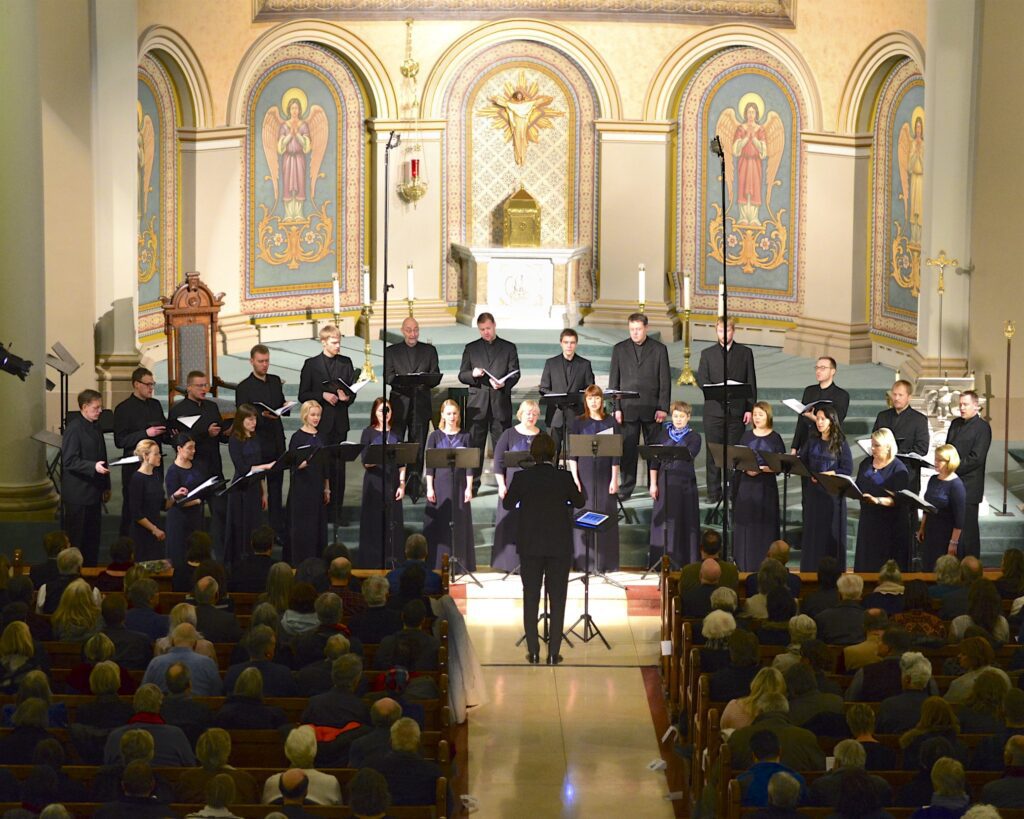
Even with all of this talk of spirituality, Omar Daniel reaffirmed the human, terrestrial facets of this music. Such as the inspiration provided by his own non-musical adventures. Daniel has explored castles in England; he has worked as a bouncer at El Mocambo. These life experiences, he contests, “are the most crucial element to being a good artist. The craft of an art form is of course important for the realization of the ‘idea’, but engagement with life in all its glory is where the ‘idea’ comes from. So, travel, friends, strange jobs, hobbies, sport, literature—they all live deep in the artist’s psyche and contribute to their unique view of the world.”
Then there’s the universal, timeless pleasure of a beautiful voice. Something that Daniel says “is hard to improve upon.” Indeed, excellent musicians like the Estonian Philharmonic Chamber Choir can bring out hidden meanings with their voices alone. Daniel says “… my piece will resonate in ways that I cannot imagine until I hear them sing.”
Vocal music, even when it’s familiar to us, still has room to surprise us and reveal profound mysteries.
You can purchase tickets for this concert from the website of The Royal Conservatory of Music.
